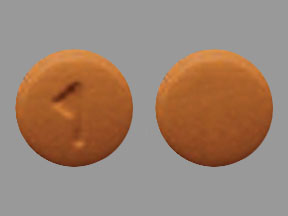Imatinib Interactions
There are 772 drugs known to interact with imatinib, along with 7 disease interactions, and 1 alcohol/food interaction. Of the total drug interactions, 139 are major, 606 are moderate, and 27 are minor.
- View all 772 medications that may interact with imatinib
- View imatinib alcohol/food interactions (1)
- View imatinib disease interactions (7)
Most frequently checked interactions
View interaction reports for imatinib and the medicines listed below.
- Aspirin Low Strength (aspirin)
- Benadryl (diphenhydramine)
- Co-trimoxazole (sulfamethoxazole / trimethoprim)
- CoQ10 (ubiquinone)
- Crestor (rosuvastatin)
- Cymbalta (duloxetine)
- Demerol (meperidine)
- Eliquis (apixaban)
- Fish Oil (omega-3 polyunsaturated fatty acids)
- Iron Sulfate (ferrous sulfate)
- Januvia (sitagliptin)
- Jardiance (empagliflozin)
- Lasix (furosemide)
- Lipitor (atorvastatin)
- Lyrica (pregabalin)
- Metoprolol Succinate ER (metoprolol)
- Metoprolol Tartrate (metoprolol)
- MiraLAX (polyethylene glycol 3350)
- Paracetamol (acetaminophen)
- Plavix (clopidogrel)
- Probiotic Formula (bifidobacterium infantis / lactobacillus acidophilus)
- Quercetin (bioflavonoids)
- Synthroid (levothyroxine)
- Tylenol (acetaminophen)
- Vitamin B12 (cyanocobalamin)
- Vitamin C (ascorbic acid)
- Vitamin D3 (cholecalciferol)
- Xolair (omalizumab)
- Zofran (ondansetron)
- Zyrtec (cetirizine)
Imatinib alcohol/food interactions
There is 1 alcohol/food interaction with imatinib.
Imatinib disease interactions
There are 7 disease interactions with imatinib which include:
- cardiovascular disease
- fluid retention
- bone marrow suppression
- gastrointestinal disorders
- hepatic impairment
- hypothyroidism
- renal impairment
More about imatinib
- imatinib consumer information
- Compare alternatives
- Pricing & coupons
- Reviews (48)
- Drug images
- Side effects
- Dosage information
- During pregnancy
- Drug class: BCR-ABL tyrosine kinase inhibitors
- Breastfeeding
- En español
Related treatment guides
Drug Interaction Classification
| Highly clinically significant. Avoid combinations; the risk of the interaction outweighs the benefit. | |
| Moderately clinically significant. Usually avoid combinations; use it only under special circumstances. | |
| Minimally clinically significant. Minimize risk; assess risk and consider an alternative drug, take steps to circumvent the interaction risk and/or institute a monitoring plan. | |
| No interaction information available. |
See also:
Further information
Always consult your healthcare provider to ensure the information displayed on this page applies to your personal circumstances.


